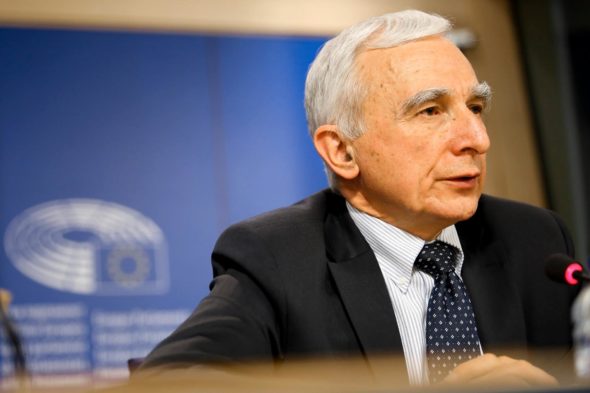For a long time now we have been protected in case Russians stop their oil supply. We can supply the refineries in Gdańsk and Płock, as well as two refineries in Germany from the Naftoport without oil pipeline deliveries from the east. The new investment in Gdańsk increases the ability of PERN to deal with interruptions in deliveries from the territory of Belarus and the Russian Federation – says the Government Plenipotentiary for Strategic Energy Infrastructure Piotr Naimski in an interview with BiznesAlert.pl.
BiznesAlert.pl: PERN’s investment in the Gdańsk oil terminal is coming to an end. How does it affect Poland’s energy security?
Piotr Naimski: It has a direct impact, because it gives PERN the ability to be flexible about accommodating tankers, and allows to differentiate between different oil grades for refineries that are the recipients of this raw material. To compare, a storage tank with a capacity of 100 thousand cubic meters is more or less equal to one tanker. PERN has increased the storage capacity of the oil terminal in Gdańsk to 765 tcm. In the area of the Gulf of Gdańsk, PERN’s storage capacity is almost 2 million cubic meters. The completion of the second stage of the TNG (Gdańsk Oil Terminal – ed.) expansion significantly improves the flexibility and security of oil supply for Polish refineries. This investment will make PERN a very important player in the logistics of raw materials in the Baltic Sea. The expansion of the TNG is one of the tasks assigned to PERN as part of the resolution adopted by the governing Law and Justice party in 2017. The new tanks were built according to plan. We are glad that they were built by Polish contractors, and designed by Polish engineers from the PGNiG gas project. This is an example that it is not just about building something big, but also about the entire supply chain and contractors that participate in it. Large investments drive the Polish economy.
To what extent does this investment make us independent of Russian oil?
For a long time now we have been protected in case Russians stop their oil supply. We can supply the refineries in Gdańsk and Płock, as well as two refineries in Germany from the Naftoport without oil pipeline deliveries from the east. Our Naftoport is capable of meeting their needs, which has already been proven in practice in 2019, when oil contaminated with chlorine compounds from Russia began to reach Poland. PERN, in agreement with the recipients, stopped deliveries from the east, and the refineries were supplied with deliveries from the sea. The new tanks improve safety, because the contaminated raw materials can be temporarily stored using the tanks as buffers in the system. PERN has coped with this challenge; there is no oil contaminated with chlorine compounds in the supply system anymore. The new investment in Gdańsk increases PERN’s ability to deal with interruptions in deliveries from Belarus and the Russian Federation.
Why is cybersecurity also important for such investments?
Pipeline and warehouse control systems may be vulnerable to cyberspace attacks. Recently, an oil transmission system in the United States fell prey to such an attack. Fortunately, PERN has the ability to use its infrastructure without the use of modern automation. In the event of an effective cyber attack, the valves in the oil pipelines can be operated manually, as can the tank filling system. It is much less efficient, but it is possible and certain.
How are the talks with the Russians on compensation for the contaminated oil going?
These talks were conducted by PKN Orlen, and it is Orlen that should be asked about the results of the talks.
Last year it was said that 2023 is the achievable deadline for the commissioning of the second line of the Pomorski oil pipeline. At what stage is this investment?
This deadline is on hold because the final investment decision hinges on the outcome of Orlen’s merger with Lotos. The functionality of the new pipeline will depend on the needs of the merged group. PERN is preparing an environmental report, feasibility studies, and the decision will be made when the final outcome of the merger is announced. The scale of the demand, the nature of the pipeline and the way it is used all need to be taken into account. It must be as rational as possible.
Interview by Mariusz Marszałkowski









